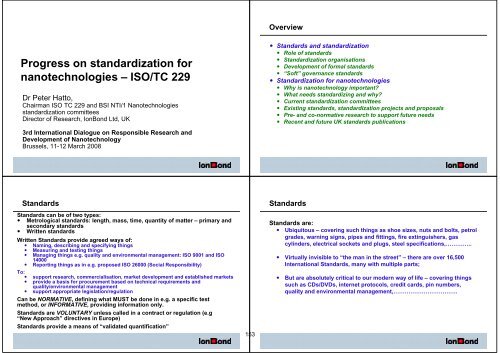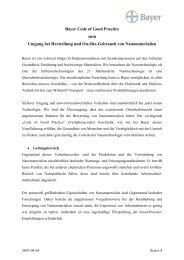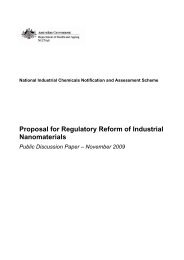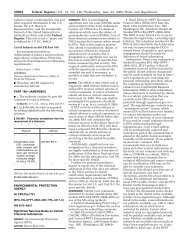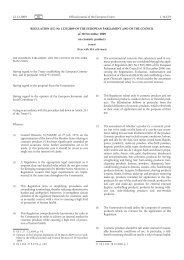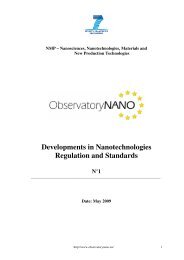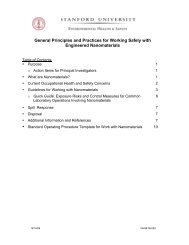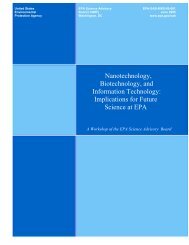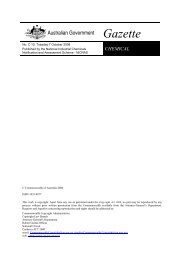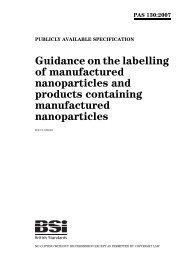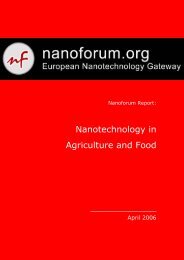Nanotechnology - Nanotech Regulatory Document Archive - Arizona ...
Nanotechnology - Nanotech Regulatory Document Archive - Arizona ...
Nanotechnology - Nanotech Regulatory Document Archive - Arizona ...
Create successful ePaper yourself
Turn your PDF publications into a flip-book with our unique Google optimized e-Paper software.
Progress on standardization for<br />
nanotechnologies – ISO/TC 229<br />
Dr Peter Hatto,<br />
Chairman ISO TC 229 and BSI NTI/1 <strong>Nanotech</strong>nologies<br />
standardization committees<br />
Director of Research, IonBond Ltd, UK<br />
3rd International Dialogue on Responsible Research and<br />
Development of <strong><strong>Nanotech</strong>nology</strong><br />
Brussels, 11-12 March 2008<br />
Standards<br />
Standards can be of two types:<br />
Metrological standards: length, mass, time, quantity of matter – primary and<br />
secondary standards<br />
Written standards<br />
Written Standards provide agreed ways of:<br />
Naming, describing and specifying things<br />
Measuring and testing things<br />
Managing things e.g. quality and environmental management: ISO 9001 and ISO<br />
14000<br />
Reporting things as in e.g. proposed ISO 26000 (Social Responsibility)<br />
To: support research, commercialisation, market development and established markets<br />
provide a basis for procurement based on technical requirements and<br />
quality/environmental management<br />
support appropriate legislation/regulation<br />
Can be NORMATIVE, defining what MUST be done in e.g. a specific test<br />
method, or INFORMATIVE, providing information only.<br />
Standards are VOLUNTARY unless called in a contract or regulation (e.g<br />
“New Approach” directives in Europe)<br />
Standards provide a means of “validated quantification”<br />
153<br />
Overview<br />
Standards and standardization<br />
Role of standards<br />
Standardization organisations<br />
Development of formal standards<br />
“Soft” governance standards<br />
Standardization for nanotechnologies<br />
Why is nanotechnology important?<br />
What needs standardizing and why?<br />
Current standardization committees<br />
Existing standards, standardization projects and proposals<br />
Pre- and co-normative research to support future needs<br />
Recent and future UK standards publications<br />
Standards<br />
Standards are:<br />
Ubiquitous – covering such things as shoe sizes, nuts and bolts, petrol<br />
grades, warning signs, pipes and fittings, fire extinguishers, gas<br />
cylinders, electrical sockets and plugs, steel specifications,…………..<br />
Virtually invisible to “the man in the street” – there are over 16,500<br />
International Standards, many with multiple parts;<br />
But are absolutely critical to our modern way of life – covering things<br />
such as CDs/DVDs, internet protocols, credit cards, pin numbers,<br />
quality and environmental management,…………………………….


